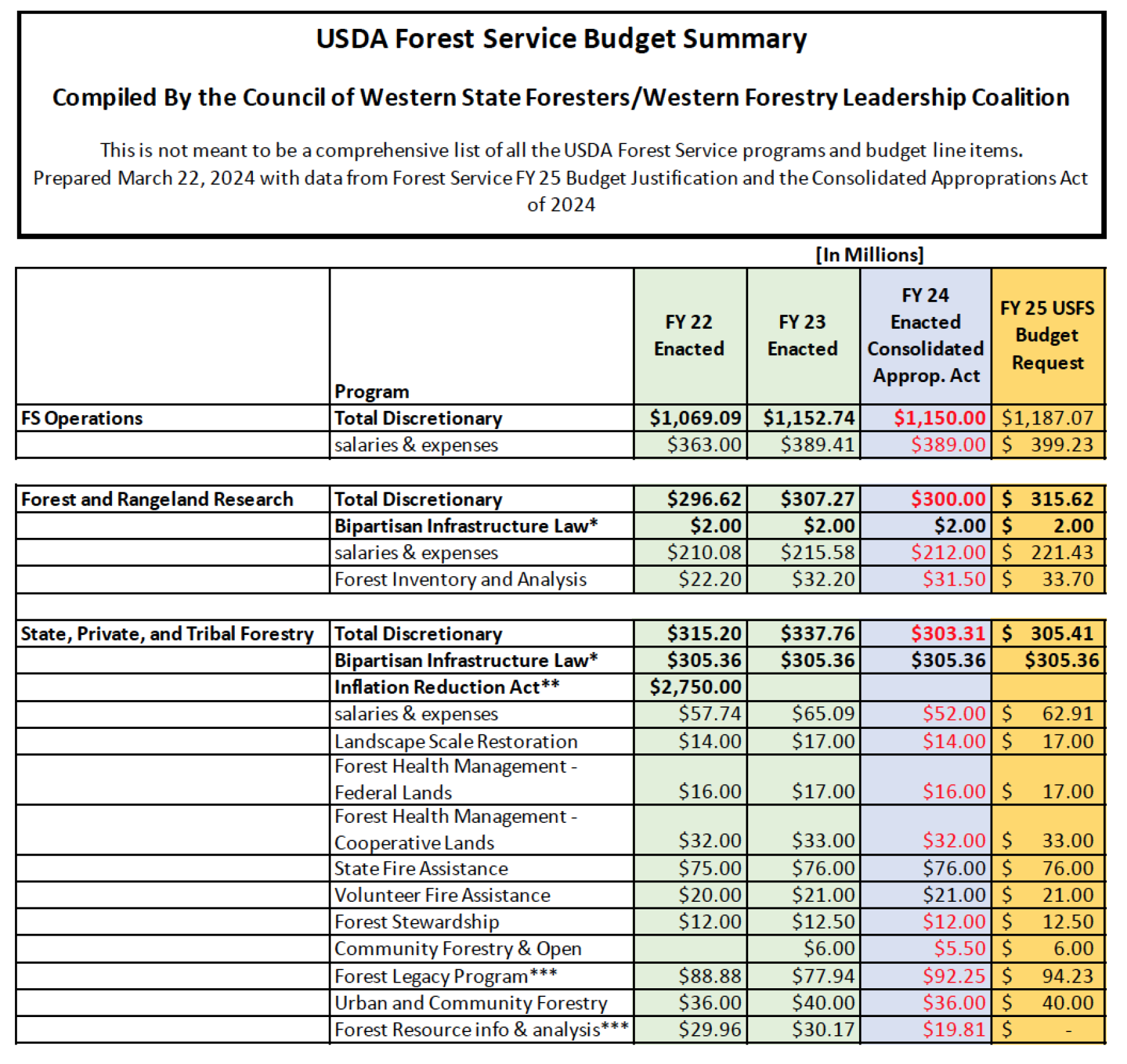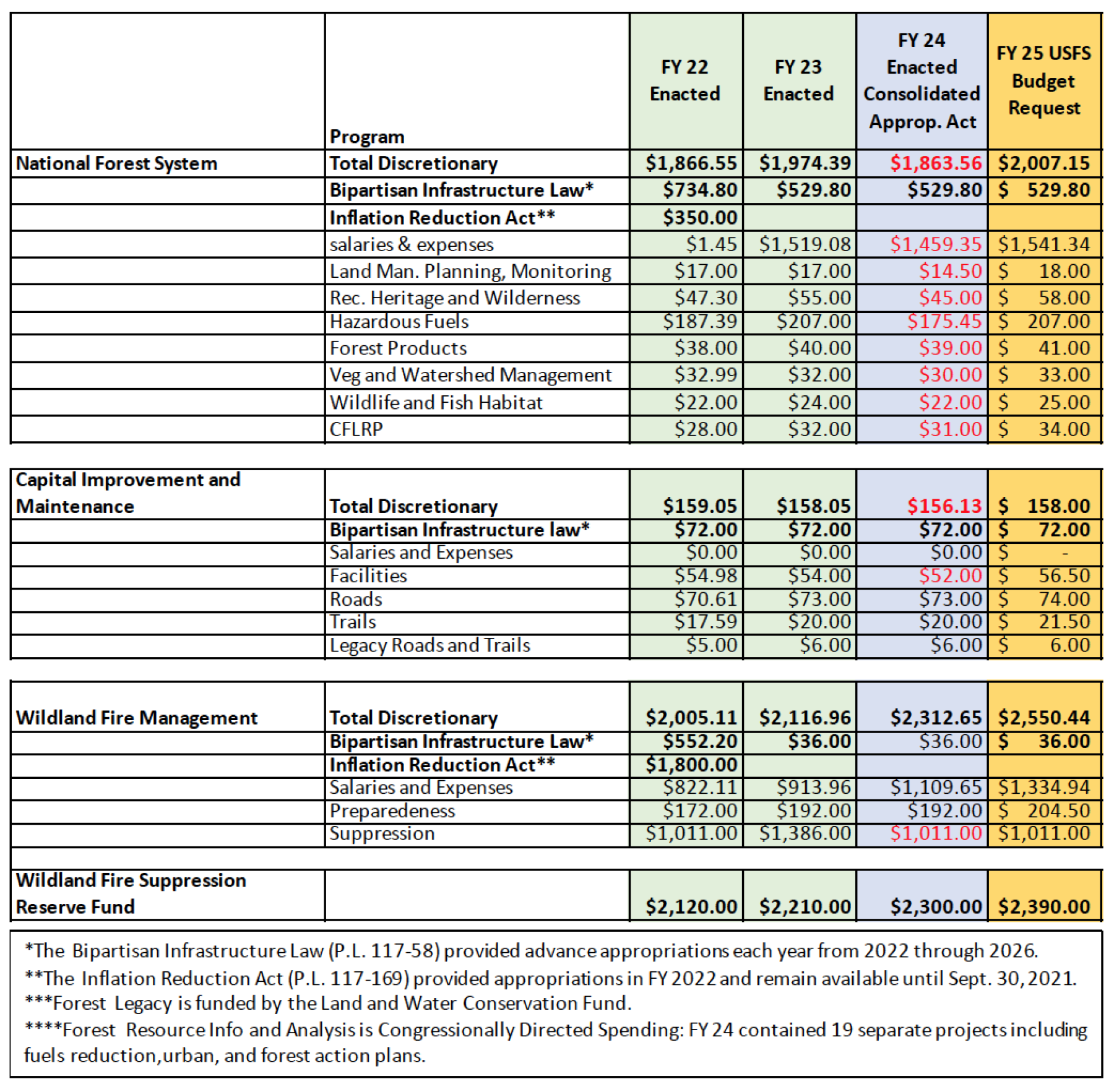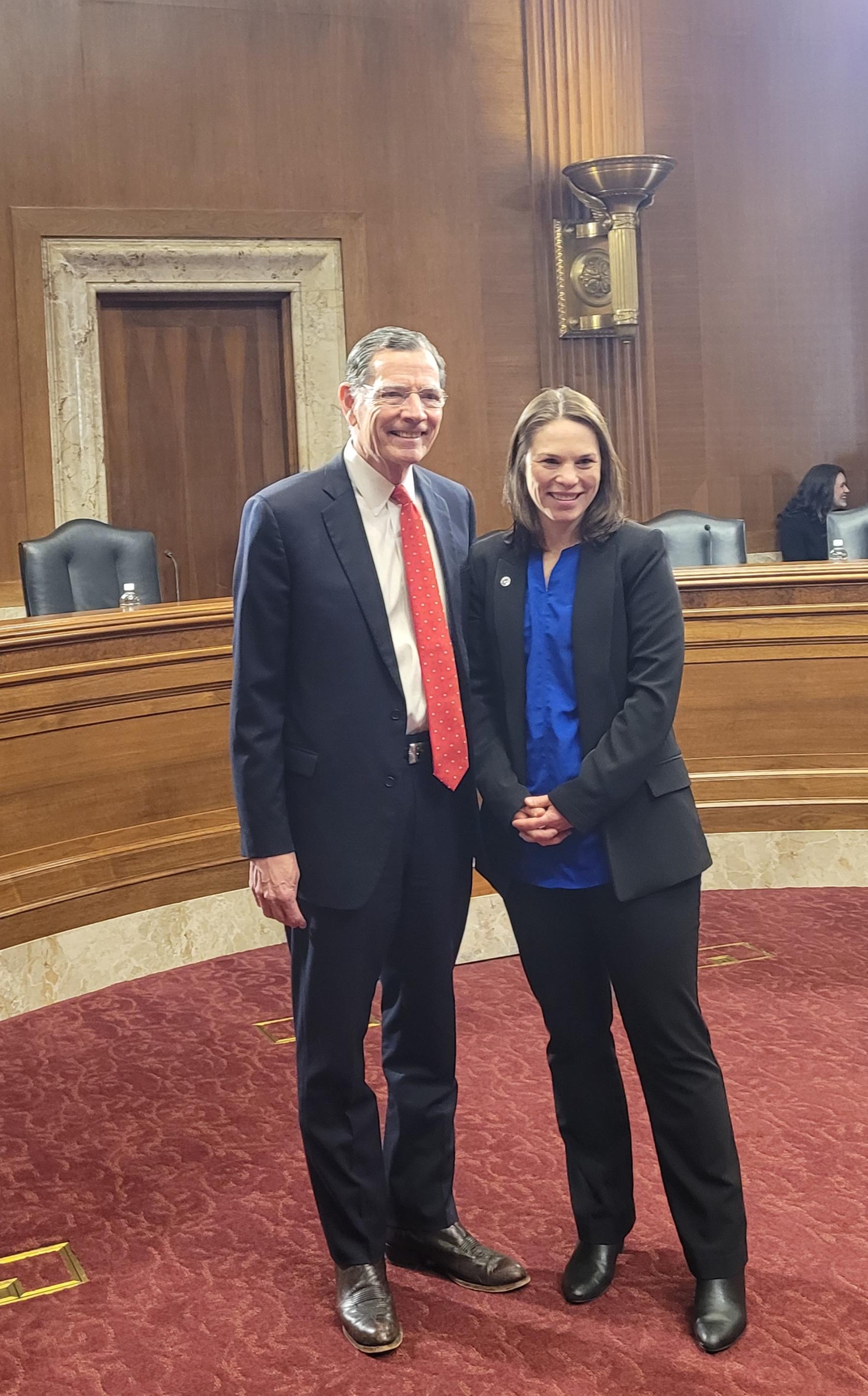(To download a PDF of the Policy Update, please visit our publication library.)
This month’s policy update highlights:
- State Foresters Testify at U.S. Congressional Committee Hearings
- Fiscal Year (FY) 2024 Forest Service Appropriations and FY 2025 Budget Request
Appropriations
On March 8, 2024, Congress passed the Interior, Environment, and Related Agencies Appropriations Act, 2024, which includes funding for the USDA Forest Service (Forest Service). President Biden, on March 23, signed a package of bills funding the remainder of the government for FY 2024.
Like most agencies, the Forest Service budget suffered reductions compared to 2023 funding levels. Nearly all Forest Service programs saw reductions in funding, but the bill does include funding to maintain increases to federal firefighter pay. In addition to FY 24 appropriations, the Forest Service has submitted its FY 25 Budget Justification, which outlines its request for FY 25.
The below table details funding levels from FY 22 through the FY 25 request.


(Download a printable version.)
Biomass for Transportation Fuel Act
Representatives Garamendi (D-CA), Kuster (D-NH), and Golden (D-ME) and Senators King (I-ME) and Shaheen (D-NH) reintroduced the Biomass and Biogas for Transportation Fuel Act. The legislation fully implements the eligibility for electricity generated from renewable biomass under the Renewable Fuels Standard (RFS) program provided by Congress in 2007. Section 3 of the legislation focuses on the elimination of certain restrictions on renewable biomass from forestlands. Specifically, the bill:
- Makes biomass removed from federal forestlands eligible under the RFS as renewable biomass. Current law only allows for biomass collected from non-federal lands.
- Removes restrictions against sourcing from former tree plantations and land cleared at any time following December 19, 2007 (date of enactment Energy Independence and Security Act of 2007 (Public Law 110-140).
- Allows for slash and thinning harvested for restoration purposes from forestlands following a wildfire or similar natural disaster.
Additionally, the bill would direct the EPA to approve the pathway for renewable electricity from biomass for those feedstocks already eligible under the RFS (forest byproducts, agricultural waste, municipal/commercial food waste, etc.)
The House bill is H.R.7609. It has been referred to the House Energy and Natural Resources Committee. View the full text and other information here.
The Senate version is S.3899. It Has been referred to the Senate Environment and Public Works Committee. View the full text of the bill and other information here.
State Foresters travel to Washington, D.C.
Utah State Forester Jamie Barnes and Wyoming State Forester Kelly Norris brought their wildland fire expertise to Washington, D.C., to testify in congressional hearings about the wildfire crisis.
Jamie Barnes, along with four other state and federal officials, testified at the Homeland Security and Government Affairs Committee hearing titled “A Nation on Fire: Responding to the Increasing Wildfire Threat.” The hearing focused on findings from the Wildland Fire Mitigation and Management Commission and covered topics ranging from hazardous fuels reduction, public health concerns from wildfire smoke, and post-fire recovery. Jamie highlighted the importance of bringing partners and stakeholders together in a Shared Stewardship approach to do the “right work, in the right place and at the right scale.” The Utah Shared Stewardship program has treated over 80,000 acres utilizing this approach. View a recording of the hearing, along with all the witnesses’ testimonies and committee members’ statements, on the committee's website.
Kelly Norris, along with representatives from the water utilities, the timber industry, USDA, and the U.S. Department of Interior (DOI), testified at the Senate Energy and Natural Resources Committee Hearing to “Examine the Findings and Recommendations of the Wildland Fire Mitigation and Management Commission.” Participants discussed the diverse and devastating impacts fire has on our forests and communities and the need to proactively manage our forests for health and wildfire resiliency. Kelly highlighted the importance of cross-boundary management, strong partnerships, and the successful use of Good Neighbor Authority (GNA) in Wyoming. Kelly noted that “states are contributing to the restoration of federal forests at an unprecedented scale.” Wyoming State Forestry Division has partnered with the Forest Service and DOI Bureau of Land Management to treat over 11,000 acres and sell approximately 32 million board feet of timber under GNA. View a recording of the hearing, along with all the witnesses’ testimony and committee members’ statements, on the committee's website.
Image
| Image

|
